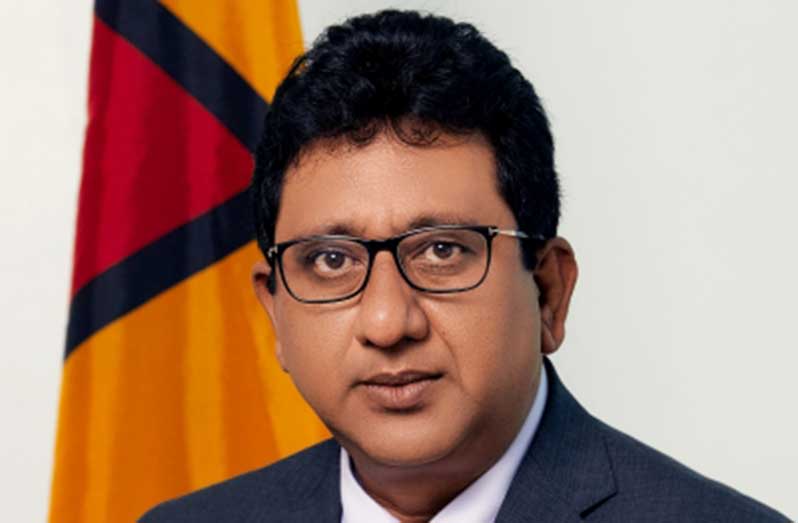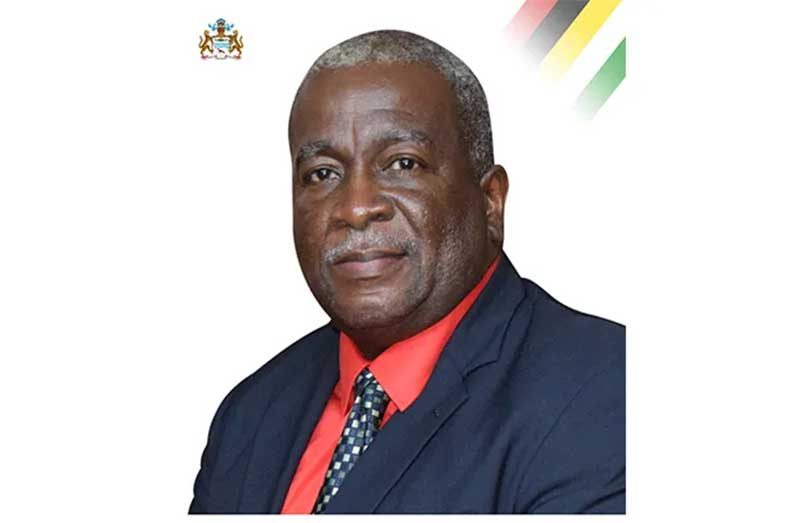-PM Phillips hails it a milestone in Guyana’s digital transformation
-Nandlall criticises opposition for failing to properly review bill
PRIME Minister, Brigadier (Ret’d) Mark Phillips has hailed the Open Data Bill as a cornerstone of the People’s Progressive Party (PPP) government’s commitment to transparency, innovation and the responsible management of public data.
His remarks came on Monday as debates commenced on the landmark legislation in the National Assembly, marking another pivotal step in the administration’s push for digital transformation. Following the second and third readings of the bill, it was passed following bipartisan support from the National Assembly.
Once a bill is passed, it is then submitted by the Clerk of the National Assembly to the President for his signature. Only when a Bill has been signed by the President does it become a statute law or an act.
PM Phillips emphasised the broader significance of the bill, describing it as a critical component in the government’s legislative agenda, aimed at modernising governance and leveraging data to improve the lives of citizens. “As much as this bill forms part of our legislative agenda, it is also very much a critical step forward in how we govern and utilise data for the benefit of our people.”

Placing the Open Data Bill in context, PM Phillips highlighted its role as part of a comprehensive framework designed to balance the benefits of digital innovation with the protection of individual rights and privacy.
He pointed to complementary legislation such as the Data Protection Act and the Data Identity Card Act, both of which were recently passed in the National Assembly.
“The Open Data Bill is the latest chapter in a series of forward-thinking initiatives,” he declared.
The bill mandates public agencies to make non-sensitive data accessible to the public, fostering greater accountability and transparency across government institutions.
“Mr Speaker, this bill represents a firm commitment by our government to empower institution[s] and citizens alike, fostering an environment where data becomes a tool for innovation, economic growth and more efficient governance,” PM Phillips said.
Additionally, the bill includes robust provisions to ensure that the release of public data does not compromise national security or individual privacy. As such, he said clauses 11 and 15 of the bill “strictly prohibits the disclosure of non-public data assets and imposes strict penalties for breaches of confidentiality.”
“This ensures that private, sensitive and classified information remains secure. Moreover, Mr Speaker, the Open Data Bill builds on the foundation of the Data Protection Act, reassuring confidentiality, and privacy safeguards,” the prime minister added.
FOSTERING COLLABORATION
While touting the benefits of the Bill, Phillips said: “One of the most excited [sic] aspects of this bill is its potential to foster collaboration and innovation.
Clause 12 encourages public authorities to engagedwith citizens, researchers and private-sector entities, enabling the co-creation of solutions to societal challenges using public data.”
Prime Minister Phillips drew parallels between Guyana’s Open Data Bill and similar legislation enacted in the European Union, the United States of America, and the Caribbean, underscoring how the bill aligns with global trends in data governance.
He noted that the legislation reflects global best practices in data governance and positions Guyana as a leader in the Caribbean in implementing policies that align with the evolving demands of the digital economy. “We [the government] are laying the foundation for a modern Guyana—one that is prepared to lead in the digital age while ensuring that data is used safely, responsibly, and for the betterment of all citizens….”
Meanwhile, Attorney-General and Minister of Legal Affairs, Anil Nandlall, SC, joining the debate sharply criticising opposition Member of Parliament Annette Ferguson.
Nandlall said that Ferguson had failed to thoroughly review the bill, noting that many of her concerns had already been addressed under the provisions of the Data Protection Act.
Commenting on Ferguson’s presentation on the Open Data Bill, Nandlall said: “The entire presentation of the honourable member we should put one side and discard.”
He highlighted the timeless importance of data in shaping decisions, stating that “data has always been a crucial component of decision-making from time immemorial.”
“Policymakers, in conceiving policies, in designing policies, and in determining the suitability of policies, have always recognised that data is important. Why? Because data guides human behaviour; data guides the approach of human beings in terms of conduct and how policies should be fashioned to ensure that they obtain optimum effect,” the Senior Counsel reasoned.
He highlighted that over recent decades, advancements in technology have significantly simplified the processes of accumulating, storing, and utilising data.
Nandlall said: “Developed countries have grabbed this opportunity with both hands. Every developed country in the world has a modern data policy. Some in the form of policy and some in the form of policy coupled with legislation. And it is all part of e-governance.”
According to him, the European Union has long established a public data policy.
Building on this foundation, he said that individual EU member states have enacted their own legislation to align with and expand upon these principles.
Similarly, the attorney general highlighted that other global powers such as the United States, India, Japan, and China have implemented robust frameworks to govern data accessibility and security. Nations such as Singapore, Kuwait, and the United Arab Emirates have also embraced this trend, he added.
Guyana, he noted, is now progressing in this direction.
In response to opposition claims that the government is concealing information, Nandlall stated: “We are passing this bill that compels us in government to make public data available for members of the public for constructive use in decision-making.
“That is the type of governance that we embrace. We face our challenges with open arms. You want transparency? We are putting it in the law so that all the information that you need will be available. If we wanted to control the data, we didn’t even have to bring this law.”
“This is an innovative piece of legislation, the brainchild of President, Dr Irfaan Ali,” Nandlall emphasised. “It is his vision to move Guyana to a different place and to make data available to inform the developmental trajectory of our country.”



.jpg)











